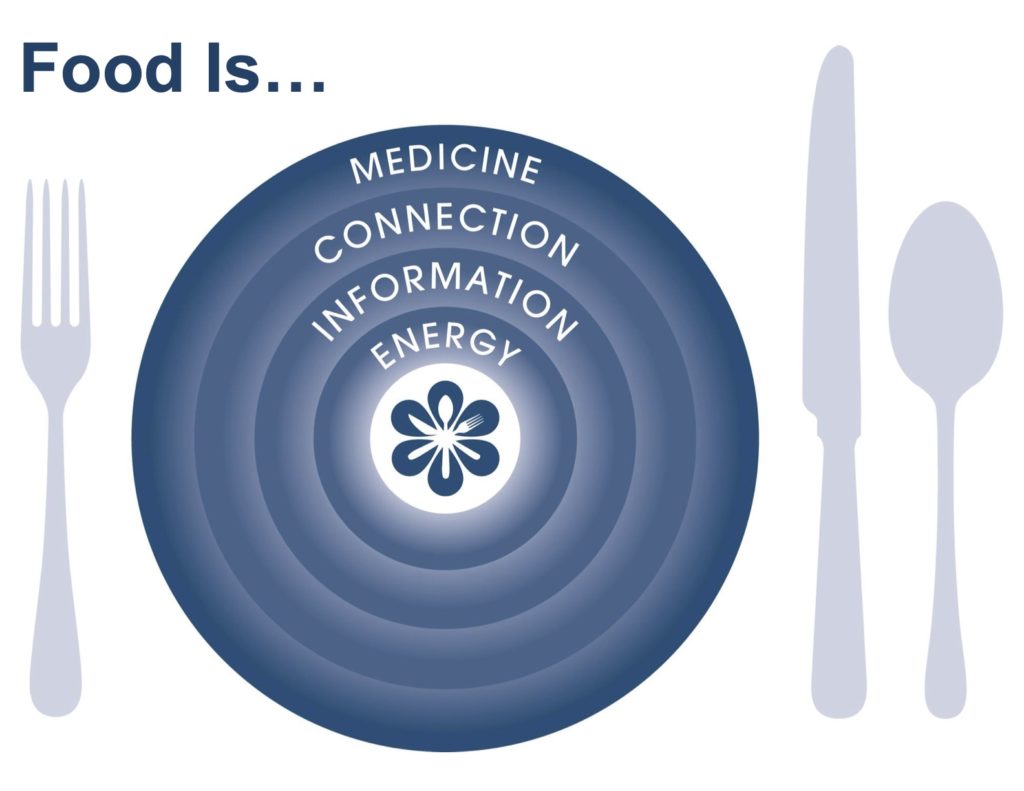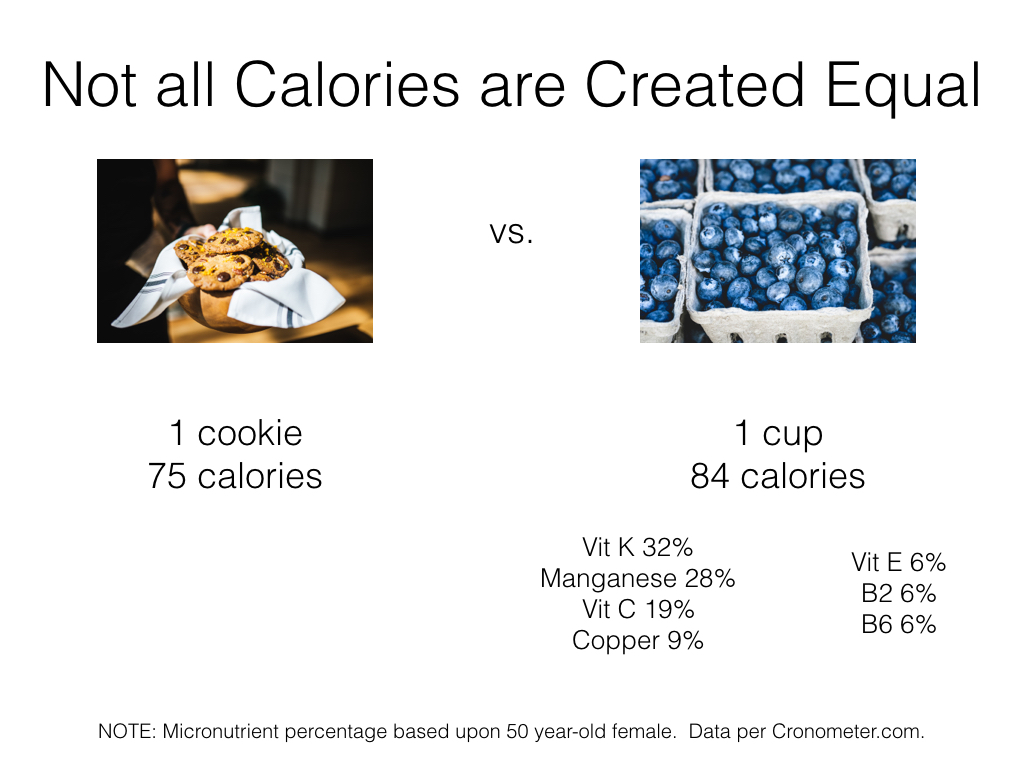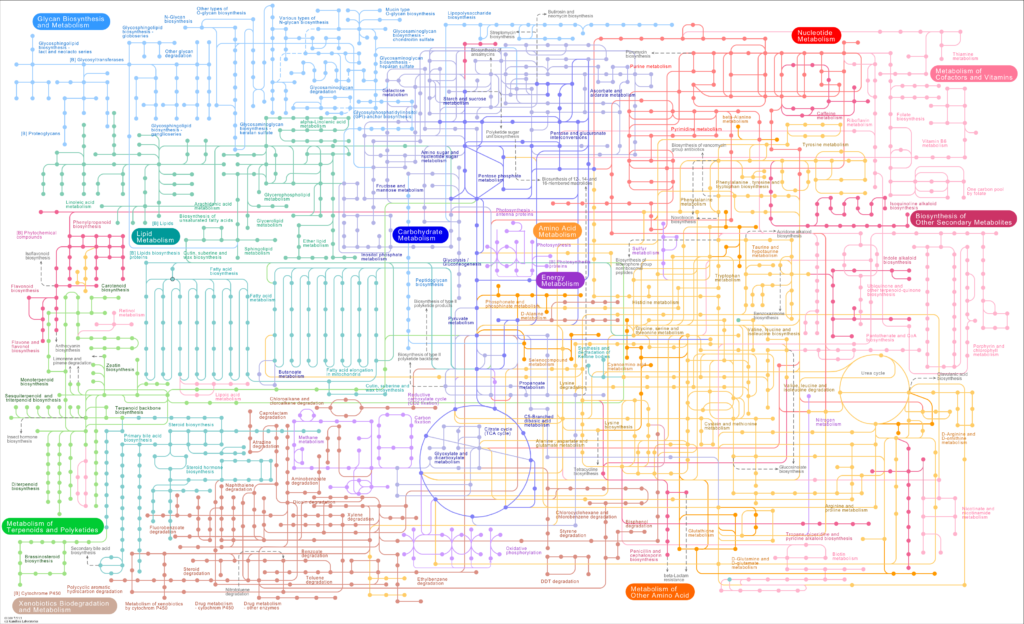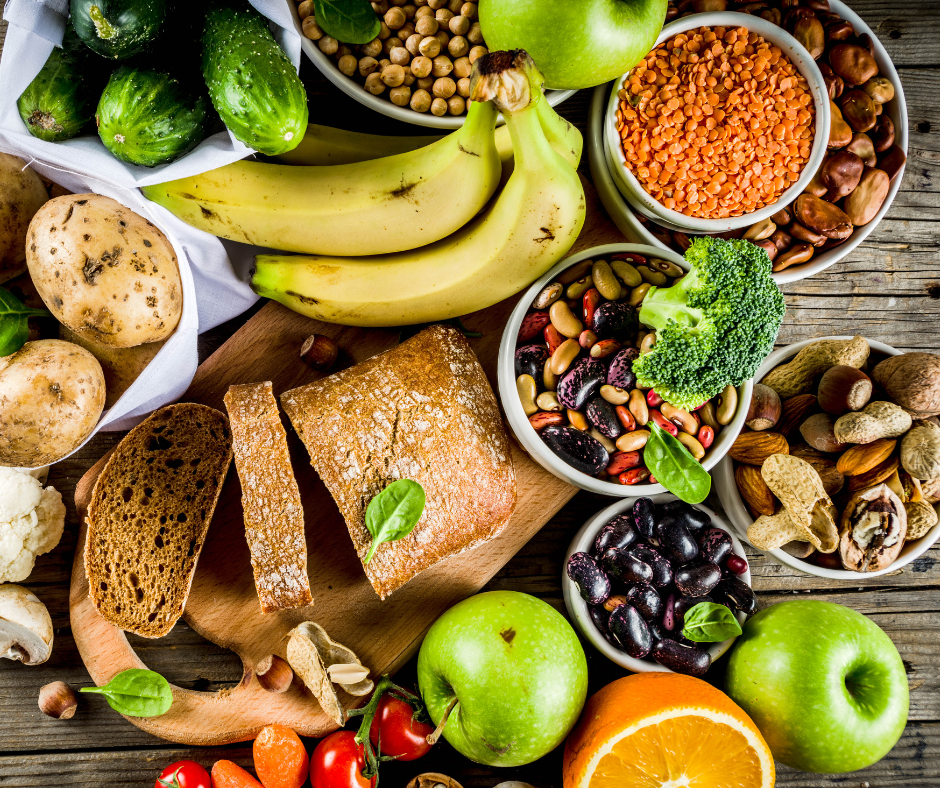Functional nutrition views food at 4 different levels – energy, information, connection and medicine.

The level most often associated with food is energy. However, it is more commonly thought of as calories.

Food = energy = calories = fuel
When we think about food as calories, we are often tracking and monitoring our intake to lose weight. When we think about food as energy, we most often think about food supporting our physical activity. We might even think about food as alleviating our lack of energy when we get hungry.
Let’s get CrAZy and expand our thinking even further with the following two concepts.
Not all calories are created equal
Quality food creates quality function and balance within the body.
Food -> Micronutrients -> Metabolic processes -> Proper function and balance
Different foods contain different quantities of micronutrients. Micronutrients are required for metabolic processes. Metabolic processes maintain proper function and balance. When micronutrients are deficient, metabolic processes are compromised. Dysfunction and imbalance occur.
We experience health and vitality when our food supports optimal function and balance. We are full of life and on top of our game.
When our food creates dysfunction and imbalance, vitality is compromised. We may also experience fatigue, afternoon crashes, brain fog, etc. While we are designed to overcome dysfunction and imbalance, it takes extra work to do so. Over time, the extra work takes a toll on the body. Eventually, our bodies are unable to keep up. Chronic imbalances and dysfunction lead us further away from health and more and more towards disease. To learn more, check out the following blog post https://aknutrition.net/2022/11/22/functional-nutrition/
To illustrate, consider the micronutrients within a chocolate chip cookie vs. 1 cup of blueberries. While they both contain around 80 calories, their micronutrients are very different.

The chocolate chip cookie contains less than 5% of the recommended daily intake for any micronutrient. Therefore, it does not do much to support metabolic processes, proper function or balance. Cookies are often considered empty calories as they provide minimal nutritional value.
On the other hand, the blueberries contain several micronutrients. Therefore, they support metabolic processes, proper function and balance.
Energy Balance
In addition to providing energy for our physical activity, food also fuels our continuous and automatic metabolic processes. To illustrate the complexity of these processes, check out the picture below.

A LOT going on. As you might imagine, it takes quite a bit of energy for these processes to run smoothly.
When assessing your food intake, it is important to account for the energy needed to maintain proper function and balance by means of these metabolic processes. If these significant calories are not taken into consideration, undue stress is placed on your body. This occurs most often when when we are continuously living in the mindset of calorie restriction. Less is not always more.
Bottom line
Expand your thinking about calories.
Are you unable to do the things you wish to do? Do you suffer from symptoms such as fatigue or brain fog? Are your medical lab values out of the normal range? If so, your food may be lacking in micronutrients. Not all calories are created equal.
Are you continuously fatigued? Are you drastically reducing your calories and still not losing weight? If so, your energy balance may be something to explore.
